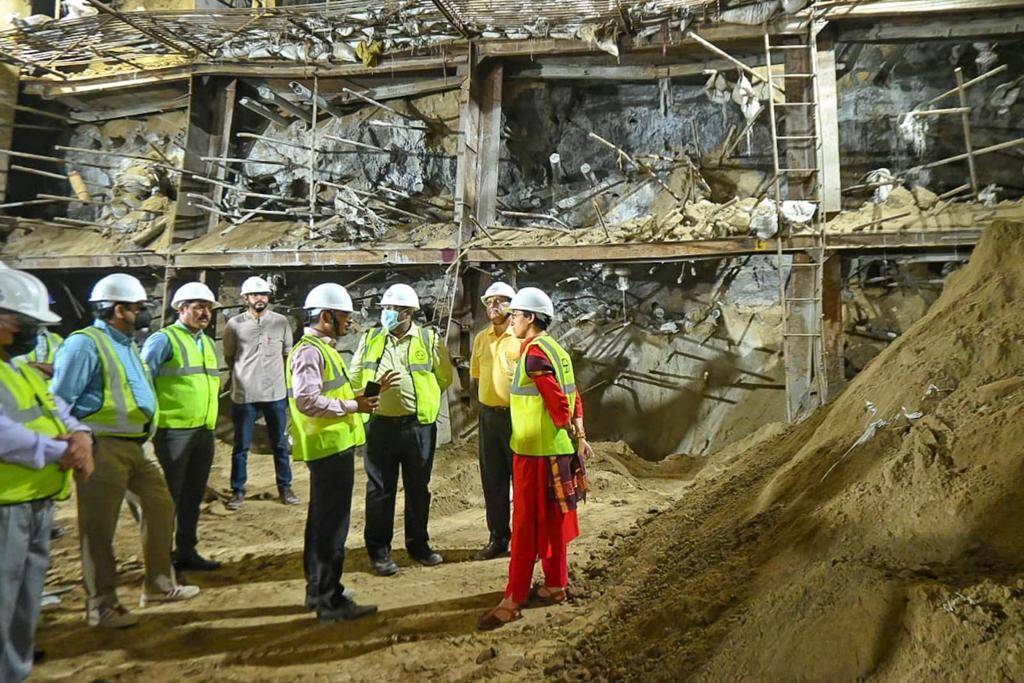New Delhi: In order to decongest traffic on the Ring Road, the Kejriwal Government’s PWD is constructing an underpass between Bhairon Marg and Ring Road. This will benefit the thousands of commuters moving towards and from Sarai Kale Khan, Akshardham, and Noida every day. On Thursday, PWD Minister Ms. Atishi inspected the under-construction underpass along with the PWD officials.
While inspecting the progress of the work, PWD Minister Ms. Atishi said, “Construction of this underpass on Ring Road at Pragati Maidan is a magnificent example of modern engineering. Constructing this underpass underneath a busy railway line was a challenging task, but our PWD engineers proved their readiness to tackle every challenge. Such projects prove that despite various challenges on the ground, the Kejriwal Government’s PWD department is determined to make Delhi roads traffic jam free.”

Ms. Atishi added that after the construction of this underpass, the road between Delhi’s two inter-state bus terminals – Kashmiri Gate and Sarai Kale Khan – will be completely signal-free, and the hundreds of thousands of vehicles passing via this route will no longer have to face traffic jams. In addition, vehicles that currently need to travel towards Sarai Kale Khan, Akshardham, and Noida via the Bhairon Marg route will no longer have to face traffic problems and can directly exit onto the Ring Road using the underpass.
She added, “the PWD has adopted a very unique engineering model to construct this underpass. For the first time in the country, this engineering technique of box pushing is being used on such a large scale, which shows that our PWD is always ready to face new challenges and come up with unique solutions.”
It is to be noted that constructing this underpass is a big engineering challenge in itself. A part of the underpass is located underneath a very busy railway line where about 120 trains pass daily. Construction work cannot be done in conjunction with the active railway corridor that is regularly used for trains. Therefore, PWD is only able to work here for 4-5 hours daily. This includes 3-4 hours for removing and fixing the railway line, and the remaining time is spent by PWD moving 1400-tonnes concrete blocks underneath the railway line to make the tunnel.
The railway line is at a height of 9 metres from the ground. The concrete block is moved 30 cm daily by using 6000 horsepower hydraulic machines to prevent the railway line from sinking during the work. After sliding the concrete block, the soil present there is removed. Only after this, the work of box pushing can start again the next day. Here the engineers shared that the technique of box pushing was used earlier as well but this work is being done on such a large scale for the first time in the country.
Here, another big challenge is that the Yamuna River is very close to the underpass, which makes it difficult to work here. But despite facing these challenges, the engineers at PWD have found the solution to this challenge too.